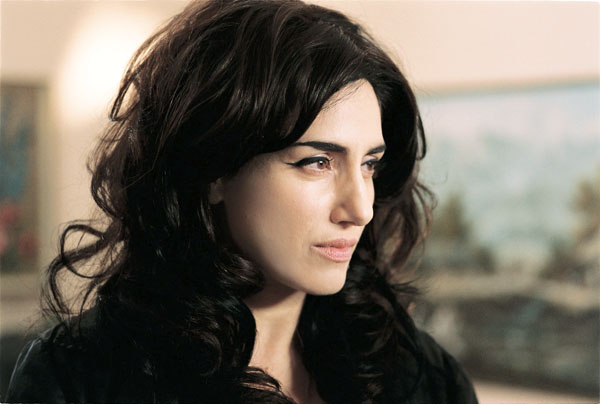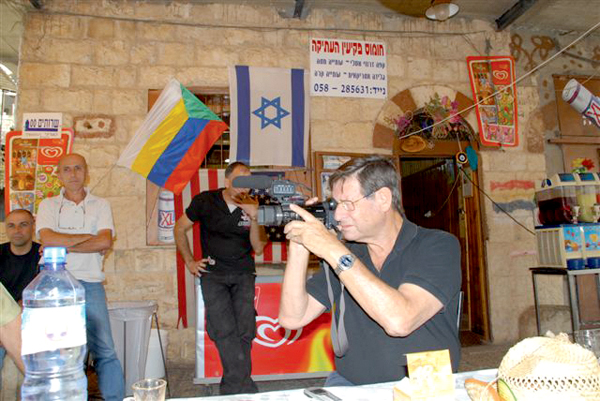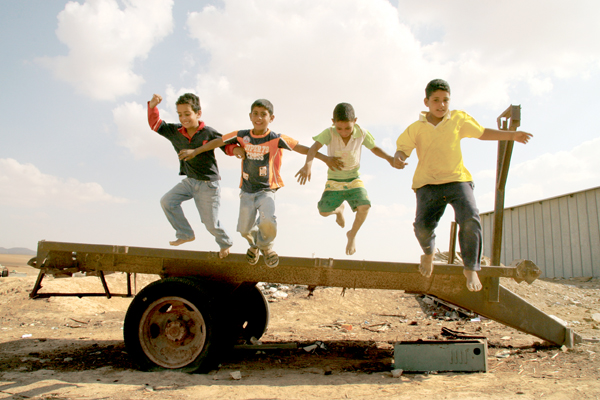|
Reviews of Recent Independent, Foreign, & Documentary Films in Theaters and DVD/Home Video

THE 3RD
ANNUAL OTHER ISRAEL FILM FESTIVAL The third Other Israel Film Festival (OtherIsrael.org) provides a rare chance to see and hear on screen the over 20% of the country’s population who are Arab. Though many of the films were made for Israeli television, few of the selections, unfortunately, are likely make it to U.S. audiences, even on PBS or cable. Americans may not be familiar with the events in October 2000 that have scarred relations between Jewish and Arab citizens, but many of this year’s films refer to the repercussions. During that month, 13 Israelis—twelve Arabs and one Jew—were killed amidst protests and demonstrations (some say riots) that were violently suppressed by security forces. The Supreme Court established a commission of inquiry, led by Justice Theodor Or, to investigate the root causes and the police response. Anger against the authorities and the Or Commission is a consistent theme for a minority whose clan, ethnic, and religious identities are perceived ipso facto as political statements.
Director Mohammad Bakri tracks the emotional issue of land ownership in Zahara. He sonorously narrates his 78-year-old aunt’s story of what happened to their family during the partition of Israel in 1948 and since. While paying tribute to how she forcefully held the generations together, he delves into decades of blame and confusion that both foster and counter myths. In The Invisible, director Gil Karni follows the determined and almost quixotic 12-year efforts of Army veteran Fahim to gain government recognition, public services, and equal respect from Israeli authorities for his neglected home village of Arab al-Na’im. In the face of legal restrictions, skeptical bureaucrats, and politicians, it is heart breaking to see the limited successes this natural leader gains from doggedly working within the system. Whether he’s trying to get electricity or a soccer field, every two steps forward, one step back seems only to fuel more radical elements and reactions within and outside the town. In comparison, Sameh Zakout in Karni’s SAZ–The Palestinian Rapper for Change just seems like the usual aggressive young hip hop artist fighting the power through words. Maybe the subtitle “The Palestinian Rapper for Change” will make more sense at his live concert during the festival. The series annually features episodes of the Norman Lear-like, socially-conscious satirical TV sitcom Arab Labor. This year its charming and philosophical creator is also spotlighted in Sayed Kashua–Forever Scared. After the success of Kashua’s debut novel Dancing Arabs, director Dorit Zimbalist follows the Israeli-Arab writer/columnist as he leaves urbane Jerusalem to write his second novel, Let It be Morning, back in his parents’ rural Galilee village. He ruminates over the impact on his life of being plucked from this village as the sole gifted Arab child to attend a prestigious Hebrew language boarding school, with the result that he can’t write literature in his native tongue. This fascinating introduction intrigued me to seek out his work, in English translation, and I was further rewarded by his talent. (Director Ibtisam Mara’na’s look at her own family traditions in Badal will help understanding of the restrictive custom referred to in Kashua’s work—a package deal marriage of two couples, usually of siblings, that more than doubles the strains and stresses of arranged marriages.)
And finally, Jaffa
is a rare success at a credible and
touching Romeo and Juliet tragedy within the country’s Arab/Israeli
conflict. Writer/director Keren Yedaya
reunites two of Israel’s finest dramatic actresses from her
Cannes-winning Or (My Treasure),
Ronit Elkabetz
and
Dana Ivgy
as, again, a mother and daughter. The head of
their family owns a struggling auto repair shop in the
titular mixed, working-class neighborhood near Tel Aviv, and the entire
family works alongside mechanics Toufik (Mahmud
Shalaby) and his father Hassan (Hussein
Yassin Mahajne). But as the sweet
young lovers Mali (Ivgy) and Toufik plot a secret elopement to Cyprus,
where they can legally marry, her
lazy and obnoxious brother Meir (Roy Assaf) stirs up and lays bare
prejudices that tear the two families apart. Avoiding the usual
clichés of the differences between Jews and Arabs, Jaffa is an
honest and moving look at just how hard it is for love to conquer all.
Nora Lee Mandel
|



